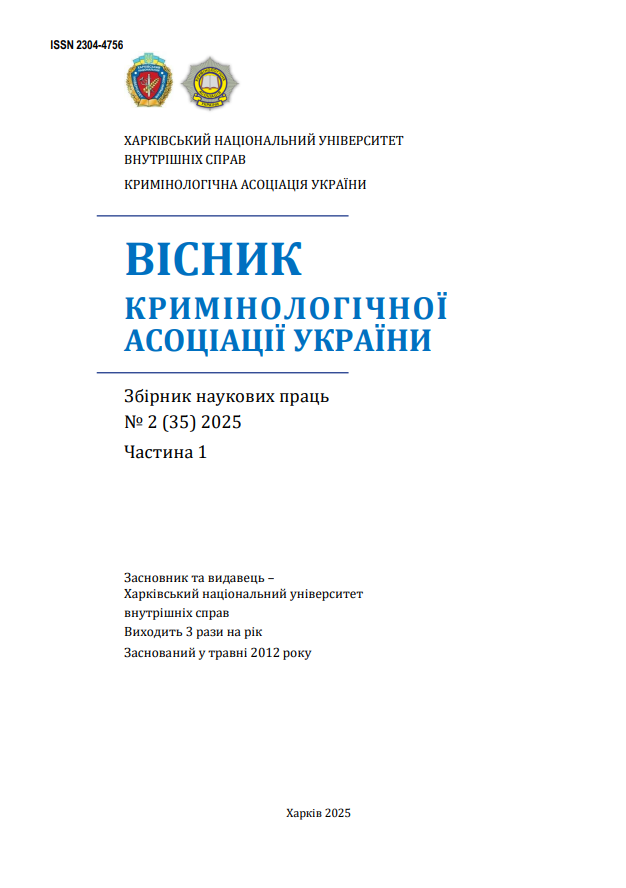DIRECTIONS FOR IMPLEMENTING CRIMINOLOGICAL POLICY TO PREVENT CRIMINAL OFFENSES AGAINST THE ENVIRONMENT
DOI:
https://doi.org/10.32631/vca.2025.2.7Keywords:
environment, state environmental policy, environmental safety,, criminal offenses, criminological policy, prevention, legislation, strategyAbstract
The scientific article is devoted to the analysis of the most important components of criminological policy – the strategy for preventing criminal offenses against the environment. The arguments are presented that in order to ensure the interests of the individual, society and the state, develop unified approaches to the formation and implementation of the relevant criminological policy, as well as methodological foundations for improving legislative acts, the Strategy of Environmental Security and Adaptation to Climate Change for the period up to 2030 should indicate criminal offenses against the environment as one of the main sources of threats to national security in the environmental sphere at the internal and external levels. The Strategy should be implemented through the development and implementation of an active state environmental policy based on the integration of environmental, legal and social aspects of development. The feasibility of developing and implementing a relevant program document that will reflect the subject of regulation covered by Section VIII of the Special Part of the Criminal Code of Ukraine – the Program for the Prevention of Criminal Offenses against the Environment, which should become one of the directions of implementing criminological policy in the analyzed area, and the goals, objectives, subjects, stages, methods and implementation deadlines reflected in it will allow us to form a more detailed idea of the specified vector (segment) of state policy, to form an effective strategy for combating this categoryof illegal acts. Attention is drawn to the fact that in the structure of the specified program it is advisable to single out a block of program measures, differentiated by preventive levels, which should be clearly formulated, functionally distributed between responsible entities with the definition of deadlines for their implementation and procedures for monitoring implementation. The importance of resource provision of the program document, which will include a mechanism for accounting for costs aimed at implementing measures related to the prevention of criminal offenses against the environment, is also emphasized.
Downloads
Downloads
Published
Issue
Section
License
Copyright (c) 2025 С.І. МАРКО

This work is licensed under a Creative Commons Attribution 4.0 International License.

